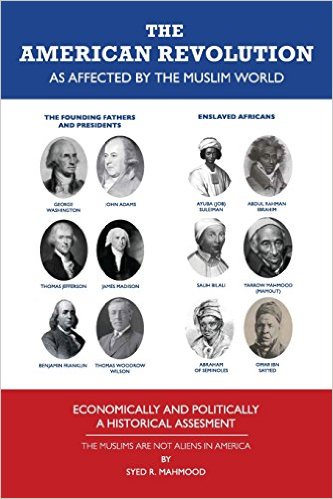‘Sule Kul’ and Din-i-Ilahi
According to Dr. Tara Chand, Akbar’s religion was the product of the synthetic effect of the Vedanta and Sufism of the age. Akbar was deeply interested in religion and philosophy and listened very carefully not only to the arguments of the Sufi and Shia divines but also the scholars of other religions also.
He watched the good men professing different creeds and ‘Sule Kul’ i.e. reconciliation seemed to him the only solution of developing harmony and friendship among followers of different faiths. In fact some scholars equate ‘Din-i-Ilahi’ with ‘Sule-Kul’.
Akbar’s ‘Sule-Kul’ or his policy of reconciliation and liberalism in religious matters was greatly influenced by his Hindu mother, his guardian and tutor Bairam Khan and Abdul Latif respectively, his contact with philosophers and scholars like Sheikh Mubark and his sons Faizi and Abdul Fazal, his contact with Rajputs, his contact with other religions and his political ambition to expand and strengthen his empire with the cooperation of all religions.
Ibadat Khana (House of Worship):
With the help of Shaikh Mubark and his sons Faizi and Abdul Fazal, Akbar collected a big library of books on history, religion, philosophy and sciences. These were read out and explained to him by Faizi. The result was that Akbar’s views on religion became very liberal and he wanted to go deep in religious matters. For this he thought of providing a meeting ground.
In 1575, Akbar established Ibadat Khana at Fatehpur Sikri for the purpose of conducting religious discussions and debates for a better understanding of deep truth in religion. Akbar himself took part in these discussions. In the beginning, Mullahs only participated.
He abolished Jizya — a tax levied on non-Muslims (1564). He established the Ibadat Khana or House of Worship (1575)
He founded a new religion called Din-i-Ilahi (1581)
Infallibility Decree (1579):
Akbar was in favor of weakening the powers of the Ulemas/Mullahs (Muslim religious leaders). Apparently, he wanted to combine in himself both political and spiritual powers. According to the Decree, Akbar became the supreme arbiter in civil and religious affairs. This declaration was signed by leading divines. Akbar himself began to read the Khutba (earlier read by the Imam of the Mosque) from the pulpit of a Fatehpuri Mosque.
‘Din-i-Ilahi’ or ‘Tauhid-Ilahi’:
After acquainted himself thoroughly with the principles and practises of different religions through listening to the debates and discussions of religious philosophers and scholars and watching their lives, Akbar founded a new religion in 1581 which included the virtues of other religions and he named it Din-i-Ilahi. Akbar tried to emphasize the ‘Sule Kul’ i.e. peace and harmony among religions.
Akbar accumulated the best practices of Islam, Hinduism, Christianity, Zoroastrianism and Jainism and propounded the new religion. Din-i-Ilahi was more an ethical cult than a religion as it did not present any common prayers or system as all these eclectic religions offered. It was based on ethical values considering and propagating slander, lust, and pride as deadly sins whereas piety, kindness, mercy as the commonalities of the diverse religions and were appreciated. Slaughter of cow was prohibited to accommodate Hinduism and celibacy was venerated.
Membership of the Din-i-Ilahi:
The number of the followers of the Din-i-Ilahi was not large. Probably it was a few thousands only. Among the nobles, only eighteen are said to have accepted this faith. Shaikh Mubark, his two sons Faizi and Abul Fazl and Raja Birbal embraced the new faith. Akbar did not force anyone to accept Din-i-Ilahi. It was sad and unfortunate that the new faith died with Akbar’s death.
According to Encyclopaedia Britannica, Dīn-i Ilāhī, (Persian: “Divine Faith”), was an elite religious movement, formulated by the Mughal emperor Akbar in the late 16th century ad. It never numbered more than 19 adherents. These adherents included Birbal, Sheikh Faizi, Prince Salim (the son of Akbar), Abul Fazl Ibn e Mubarak, Qasim Khan, Azam Khan, Sheikh Mubarak, Abdul Samad, Mullah Shah Mohammad Shahadad, Sadar Jahan, Sufi Ahmad, Mir Sharif Amal, Taki Shuster, Sultan Khawaja, Mirza Sadruddin, and the first and second son of Sadar Jahan, Sheikhzada Gosala Banarasi, and Jafar Beg.
Evaluation of Din-i-Ilahi:
The influence and appeal of the Dīn-i Ilāhī were limited and did not survive Akbar, but they did trigger a strong reaction from mainstream ulema (Muslim religious leaders).
Budauni regards the founding of Din-i-Ilahi as an un-Islamic act. Dr. Smith writes, “The whole scheme was the outcome of ridiculous vanity, monstrous growth of unrestrained autocracy – a monument of Akbar’s folly, not of his wisdom.” He further calls it “a silly invention”.
Ibadat Khana E Hussaini
Interestingly, Ibadat Khana E Hussaini, popularly known as Ibadat Khana was established in Hyderabad. This has become a hub of almost all religious activities of the Ishna Ashari Shias. Ever since it came into existence almost a century ago when it was dedicated as a mosque it got the status as a centre or Markaz of the community. Inspite of various other mosques and centers coming up Ibadat Khana still maintains its status.
[Sources: Encyclopedia Britannica, History Discussion, Wikipedia, Wiki2 ]

The Journal of America Team:
Editor in chief:
Abdus Sattar Ghazali
Senior Editor:
Prof. Arthur Scott
Special Correspondent
Maryam Turab
Your donation
is tax deductable.



